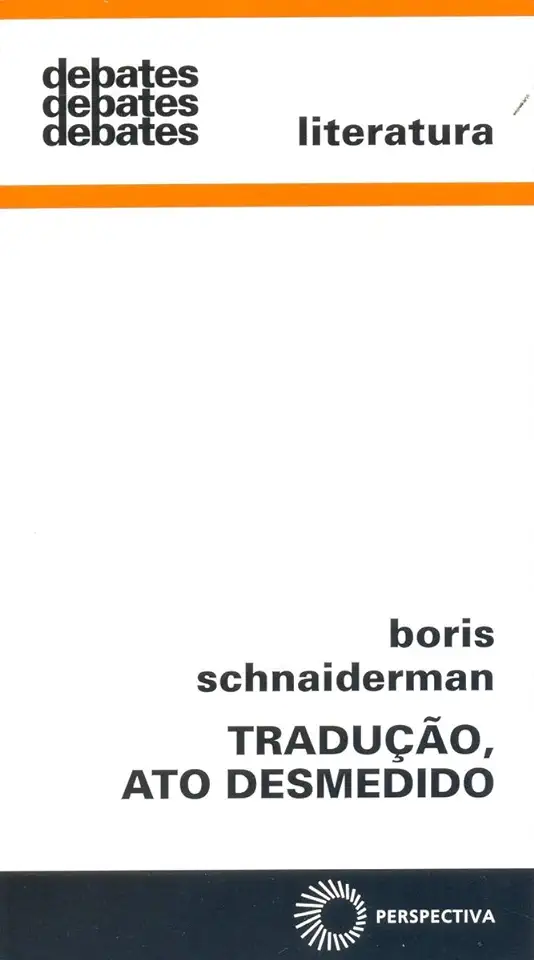
Translation, Excessive Act - Boris Schnaiderman
Translation, Excessive Act: A Philosophical Approach to Literary Translation
In his book "Translation, Excessive Act: A Philosophical Approach to Literary Translation," Boris Schnaiderman offers a unique and thought-provoking exploration of the art and philosophy of literary translation. Drawing on a wide range of philosophical and literary sources, Schnaiderman argues that translation is not simply a matter of transferring words from one language to another, but rather a complex and creative process that involves a deep understanding of both the source text and the target language.
The Nature of Translation
Schnaiderman begins by examining the very nature of translation, arguing that it is not a neutral or objective process, but rather a highly subjective and interpretive one. He draws on the work of philosophers such as Walter Benjamin and Jacques Derrida to show how translation always involves a certain amount of loss and transformation, and that the translator must make choices about how to interpret and represent the source text in the target language.
The Translator as Author
Schnaiderman also challenges the traditional view of the translator as a mere conduit for the author's words. He argues that the translator is in fact an active participant in the creative process, and that the translation is a new and independent work of art in its own right. He draws on the work of literary theorists such as Roland Barthes and Michel Foucault to show how the translator's choices can shape and transform the meaning of the source text, and that the translation can even be seen as a form of criticism or commentary on the original.
The Ethics of Translation
Schnaiderman also explores the ethical implications of translation, arguing that the translator has a responsibility to both the source text and the target language. He draws on the work of philosophers such as Emmanuel Levinas and Judith Butler to show how translation can be a form of ethical engagement with the other, and that the translator must be sensitive to the cultural and linguistic differences between the source and target languages.
Conclusion
"Translation, Excessive Act" is a challenging and rewarding book that offers a new and insightful perspective on the art and philosophy of literary translation. Schnaiderman's work is essential reading for anyone interested in translation studies, comparative literature, or the philosophy of language.
Why You Should Read This Book
If you are interested in any of the following topics, then you should read "Translation, Excessive Act":
- The philosophy of translation
- Literary translation
- Comparative literature
- The ethics of translation
- The nature of language
- The creative process
Schnaiderman's book is a must-read for anyone who wants to understand the complex and fascinating world of literary translation. It is a challenging and rewarding book that will change the way you think about translation.